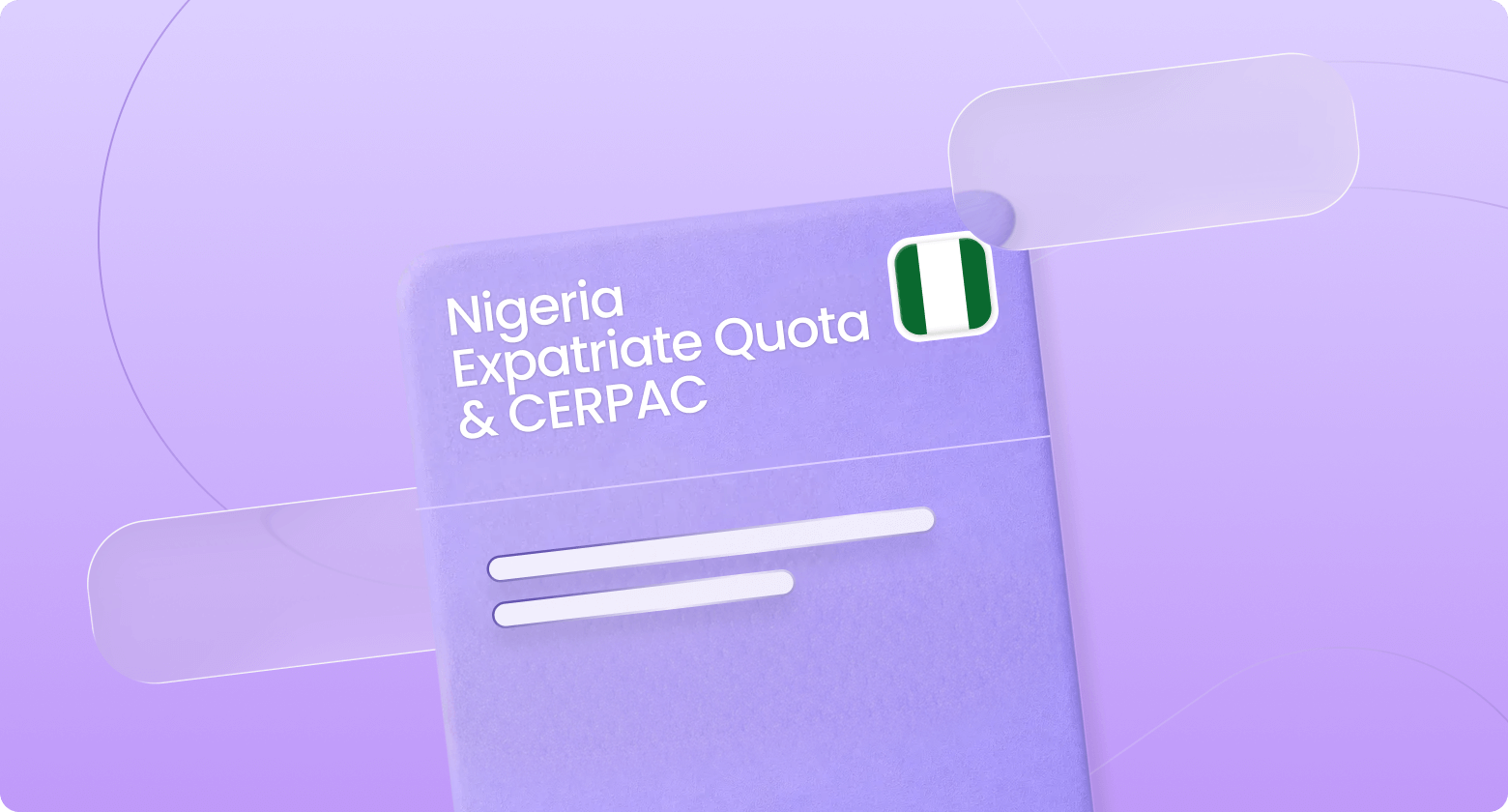Copied to Clipboard
Ready to get Started?


Key Takeaways
Employee benefits are more than just a paycheck; they’re a way to show your team you’ve got their back. But not all benefits are created equal. Statutory benefits are the ones you have to provide by law, while non-statutory benefits are the extras you choose to offer to make your workplace irresistible. For global employers, getting this right means staying compliant with local laws while building a team that loves working for you. This guide will walk you through the differences, examples, and tips to manage benefits like a pro, no matter where your employees are based.
What Are Statutory Benefits?
Statutory benefits are the non-negotiable perks that governments mandate employers provide to their employees. These benefits are designed to ensure workers have a baseline of financial and social security, covering things like retirement, healthcare, or time off during tough times. The specifics vary by country, but the goal is the same: protect employees and promote fair workplaces.
Examples of statutory employee benefits across the world include:
- United States: Social Security, Medicare, unemployment insurance, and workers’ compensation.
- United Kingdom: Statutory sick pay, maternity/paternity pay, minimum wage, and at least 28 days of paid holiday.
- India: Provident fund, gratuity, maternity benefits, and health insurance under certain laws.
- Germany: Health insurance, pension contributions, and unemployment benefits, often shared between employer and employee.
Statutory benefits relate to the standard, non-negotiable employee rights within a country. Companies are legally obligated to provide these benefits to eligible employees, and failure to do so may put employers at loggerheads with the law.
However, statutory benefits requirements may vary among countries because of differences in employment laws and regulations. Thus, they are one of the important factors to consider when expanding a business internationally.
Our innovative EOR platform and global payroll management system help employers ensure compliant administration of statutory benefits in different countries.
What Are Non-Statutory Benefits?
Non-statutory benefits are the voluntary perks you offer to go above and beyond what’s required. These are your chance to get creative and show your employees you care about their well-being and growth. They’re not mandated by law, so you have flexibility to design a package that fits your company’s values and budget.
Examples of non-statutory benefits include:
- Enhanced Health Insurance: Going beyond mandatory coverage with dental, vision, or mental health plans.
- Retirement Plan Matching: Contributing to 401(k) plans in the US or private pensions elsewhere.
- Wellness Programs: Gym memberships, meditation apps, or wellness stipends.
- Flexible Work Options: Remote work, flexible hours, or unlimited PTO.
- Professional Development: Tuition reimbursement, training courses, or conference allowances.
Non-statutory benefits are your secret weapon for standing out as an employer. Studies show that 80% of employers believe offering voluntary benefits like health insurance aids recruitment and retention. They boost morale, reduce turnover, and create a workplace where employees feel valued.
Playroll’s global payroll solutions enable you to administer non-statutory benefits strategically to stand out from competitors, create a positive workplace culture, and attract and retain the best job candidates.
Key Differences Between Statutory and Non-Statutory Benefits
Understanding the key difference between statutory and non-statutory benefits is essential for employers and employees. The top ones include:
- Legality: Statutory benefits are mandatory and required by law, while non-statutory benefits are optional perks provided voluntarily by employers.
- Purpose: Statutory benefits ensure employers meet the minimum requirements for employee protection and well-being. Non-statutory benefits are designed to help companies foster a positive workplace culture.
- Flexibility: Statutory benefits are consistent for all employees in a country. Non-statutory benefits are flexible and can be customized to meet the unique needs of a company’s workforce.
- Tax implications: Generally, statutory benefits aren’t taxable, but non-statutory perks are subject to income tax.
- Legal consequences: Non-compliance with statutory benefits administration can result in legal fines, penalties, and potential lawsuits. Non-statutory benefits have no legal consequences, and business owners can choose to offer or not to offer them.
When to Offer Statutory vs. Non-Statutory Benefits
As a global employer, knowing when to offer statutory versus non-statutory benefits is essential for staying compliant and building a workplace that attracts top talent. Statutory benefits, like Social Security in the US or maternity pay in the UK, are legally required and must be provided whenever local laws mandate them—think onboarding new hires or expanding into new countries. Skipping these can lead to fines or lawsuits, so they’re your first priority. To manage them effectively, use HR platforms like Oyster or consult local experts to ensure you’re meeting each country’s specific requirements from day one.
Non-statutory benefits, such as wellness programs or flexible work options, are your chance to shine in competitive job markets. Offer these strategically when you want to attract skilled candidates, boost employee retention, or align with your budget and workforce needs. For example, in tech hubs or regions like India, perks like professional development can set you apart. Survey your employees to understand what they value most, and roll out these benefits when your finances allow, ensuring they reflect your company culture and local preferences for maximum impact.
Should Companies Offer Both Type of Benefits?
Employers can choose to offer or skip non-statutory benefits in their company's benefits package. To optimize perks, employers should consider creating a balanced package ofbenefits. The top benefits of offering both statutory and non-statutory employment benefits include:
- Ensuring compliance with labor laws and regulations in different countries.
- Attracting and retaining the best employees.
- Helps build a satisfied and productive workforce
- Adapting and catering to employees' changing needs and preferences.
For instance, let's consider two companies with two different employment packages for UK employees.
- Company A: medical insurance, retirement plan, dental & vision insurance, holiday entitlement, 28 days paid annual leave, and maternity & paternity leave.
- Company B: Paid time off, bank holidays, leave entitlements, and working from home.
Clearly, company A offers an attractive benefits package than company B, and UK employees are more likely to prefer working in it. That underscores the role of a well-rounded benefits package in building a robust workforce.
Best Practices for Compliance and Administration
To create a compliant benefits package and ensure streamlined administration, employers should understand their legal and corporate responsibilities. That means keeping tabs on changing employment regulations and understanding the needs of their employees.
Otherwise, negligence of these legal and corporate requirements may come with serious legal fines, lawsuits, and the inability to attract and retain top talent.
Below are the best practices for managing and administering both statutory and non-statutory benefits:
- Understanding legal requirements: Our country playbooks can help you understand employment laws and regulations in different countries.
- Cost management: Have a manageable budget to ensure on-time payment of benefits.
- Workforce needs: Engage your employees to understand their unique needs and preferences and create a package around those.
- Clear communication: Transparent communication helps employees understand the benefits at their disposal.
- EOR partnership: Partnering with a reliable EOR helps ensure compliance and accurate payroll processing.
Hassle-free Benefits Administration with Playroll
Providing statutory and non-statutory benefits helps create a compliant and supportive workplace environment. That requires businesses to understand their workforce needs and stay updated with various jurisdictions' labor laws.
That’s not easy, and going on your own can be a hassle.
That’s where Playroll’s innovative EOR services and global payroll solutions come in to save you the heavy lifting. Our global payroll management system and EOR expertise help employers manage payroll and administer employment benefits following country-specific labor laws and tax regulations.
.svg)
.svg)
.svg)

.svg)
.svg)




.png)

.png)

.svg)















.svg)